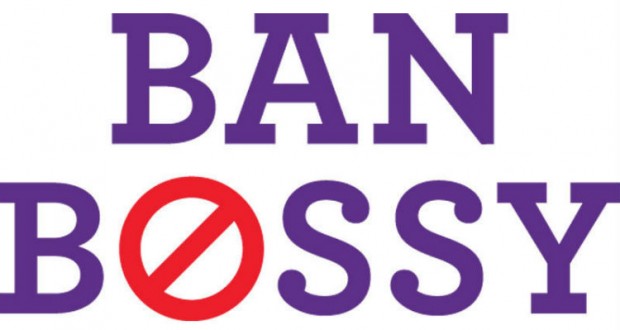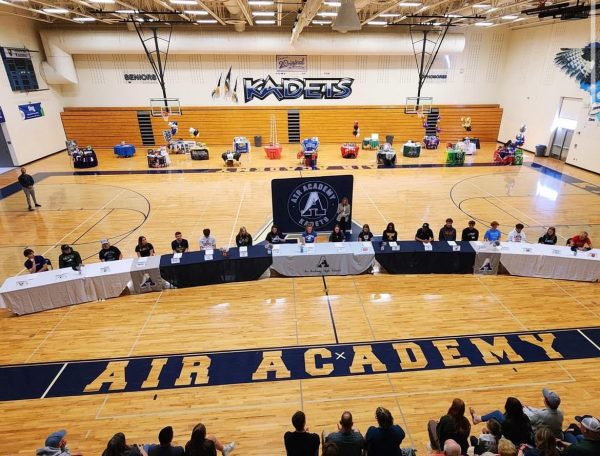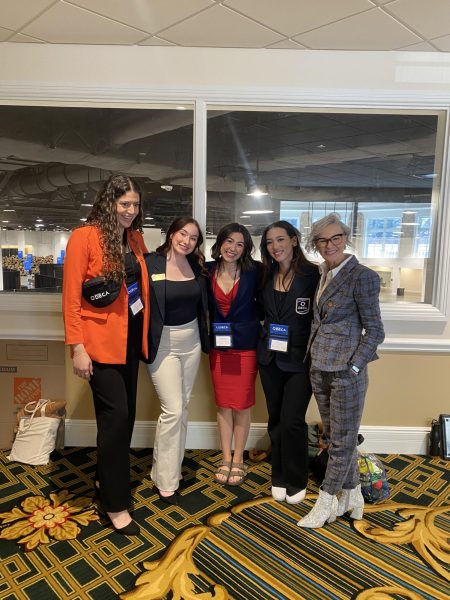Not Bossiness – Just Leadership
According to Sheryl Sandberg, the chief operating officer of Facebook and author of Lean In, banning the word “bossy” will change the way young girls are treated, claiming that the put-down stops them from pursuing leadership roles. “We call girls bossy on the playground,” Sandberg said. “We call them too aggressive or other B-words in the workplace. They’re bossy as little girls, and then they’re aggressive, political, shrill, [and] too ambitious as women.” [1] With the help of former Secretary of State Condoleezza Rice and Girl Scouts CEO Anna Maria Chavez, she has formed a campaign titled “Ban Bossy” in an attempt to remove the word from schools.
On the banbossy.com homepage, it states: “When a little boy asserts himself, he’s called a “leader.” Yet when a little girl does the same, she risks being branded “bossy.” Words like bossy send a message: don’t raise your hand or speak up. By middle school, girls are less interested in leading than boys—a trend that continues into adulthood. “Together we can encourage girls to lead.” [2] Sandberg claims that we’re “[living] in a world that is overwhelmingly run and owned by men.” [1] One of the main hopes of the campaign is to encourage parents, teachers, and other kids to encourage leadership roles in women.
The campaign has received support from companies like Lifetime, BBDO New York, and Girl Scouts, as well as celebrities like Beyonce, Jane Lynch, and P!nk. The organization behind the campaign is Lean In, created by Sandberg, which has amassed some 420 thousand likes on Facebook. On the website, stories of girls breaking gender roles are highlighted, like that of a young girl speaking up for more Legos aimed at girls’ interests. 7 year-old Charlotte Benjamin hand wrote a letter complaining that “there are more Lego boy people and barely any Lego girls.” [4]
Of course, there are two sides to every story. Critics of Ban Bossy say that resolving this problem (that being, girls being discouraged from leadership) is simply not that simple. Harold Koplewicz, who heads the nonprofit Child Mind Institute, went in search of evidence that the word “bossy” discourages girls from becoming leaders. He found that being liked was actually more important than being a leader. Alicia Clark, a DC psychologist, says, “Mean, bossy girls, as my 13-year-old daughter describes them, are closer to being bullies than they are leaders.” [3]
The studies of these two psychologists raise some fairly strong arguments against the Ban Bossy campaign: a) Is the word “bossy” really what’s preventing young girls from taking leadership roles? Studies show that girls develop much stronger anxiety about their reputation and social status than boys, which could be preventing them from stepping up to a role that could damage that. And b) Is “bossy” behavior actually what we should be trying to encourage in young children (both boys and girls, because “bossy” is really not a gender-specific term)? Bossiness is not the same as leadership. Pushy or aggressive behavior, usually demonstrated by someone being “bossy,” is not what creates a strong leader, like Clark’s daughter says.
Yes, words can certainly hurt young children’s feelings, but banning just one word is hardly going to resolve the problem, considering there are also countless other words that mean the same thing: domineering, controlling, commanding… Just to name a few. I personally believe instead of trying to get rid of a small problem in a pool of many, we should focus on teaching kids to foster leadership, not bossiness, and turn that into an attribute that is appealing and worth striving for.
[1] Mcfadden, Cynthia, and Jake Whitman. “Sheryl Sandberg Launches ‘Ban Bossy’ Campaign to Empower Girls to Lead.” ABC News. ABC News Network, 10 Mar. 2014. Web. 10 Apr. 2014.
[2] “Ban Bossy. Encourage Girls to Lead.” Ban Bossy. Encourage Girls to Lead. N.p., n.d. Web. 11 Apr. 2014.
[3] “Kansascitylifestyle.” Ban Bossy? Its Not That Simple, Say Critics of Sheryl Sandbergs Campaign. N.p., n.d. Web. 11 Apr. 2014.
[4] The Independent. Independent Digital News and Media, n.d. Web. 11 Apr. 2014.




![[Encourage girls to lead]. April 11, 2014, http://www.gshnj.org/?p=news&news_id=426 2014_ban_bossy](https://thejetstreamjournal.com/wp-content/uploads/2014/04/2014_ban_bossy-300x156.jpg)




